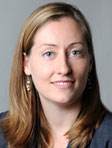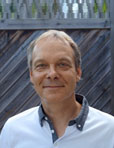Next Upcoming SPS Webinar Series: Signal Processing And Computational imagE formation (SPACE)

SPS Webinar Series: SPACE
(Signal Processing And Computational imagE formation)
SPS Webinar Series: SPACE | Confirmed Speakers (Series 1-7)
| Speaker | Date | Affiliation |
|---|---|---|
| Raja Giryes | 19 May | Tel Aviv University |
| Laura Waller | 2 June | UC Berkeley |
| Michael Unser | 16 June | EPFL |
| Katie Bouman | 30 June | Caltech |
| Yoram Bresler | TBD | UIUC |
| Orazio Gallo | TBD | Nvidia |
| Saiprasad Ravishankar | TBD | Michigan State University |
Upcoming Webinars @ SPACE
2 June 2020: Prof. Laura Waller
16 June 2020: Prof. Michael Unser
| Presenters: Date: Time: Duration: Register: |
Prof. Laura Waller, UC Berkeley (2 June 2020) Prof. Michael Unser, EPFL (16 June 2020) 2 June 2020 and 16 June 2020 11:00 am EDT (New York time) Approximately 1 hour Webinar Registration |

The IEEE Signal Processing Society would like to express our concern and support for the members of our global community and all affected by the current COVID-19 pandemic. We appreciate your continued patience and support as we work together to navigate these unforeseen and uncertain circumstances. We hope that you, your families, and your communities are safe!
Date: 2 June 2020
Speaker: Laura Waller, UC Berkeley
Title: End-To-End Learning for Computational Microscopy
Abstract: Computational imaging involves the joint design of imaging system hardware and software, optimizing across the entire pipeline from acquisition to reconstruction. Computers can replace bulky and expensive optics by solving computational inverse problems. This talk will describe end-to-end learning for development of new microscopes that use computational imaging to enable 3D fluorescence and phase measurement. Traditional model-based image reconstruction algorithms are based on large-scale nonlinear non-convex optimization; we combine these with unrolled neural networks to learn both the image reconstruction algorithm and the optimized data capture strategy.
About the presenter:

Laura Waller is the Ted Van Duzer Associate Professor of Electrical Engineering and Computer Sciences (EECS) at UC Berkeley, a Senior Fellow at the Berkeley Institute of Data Science, and affiliated with the UCB/UCSF Bioengineering Graduate Group. She received the B.S., M.Eng., and Ph.D. degrees from the Massachusetts Institute of Technology (MIT) in 2004, 2005, and 2010, and was a Postdoctoral Researcher and Lecturer of Physics at Princeton University from 2010-2012.
She is a Packard Fellow for Science & Engineering, Moore Foundation Data-driven Investigator, Bakar Fellow, OSA Fellow and Chan-Zuckerberg Biohub Investigator.
Dr. Waller has received the Carol D. Soc Distinguished Graduate Mentoring Award, Agilent Early Career Professor Award (Finalist), NSF CAREER Award, and the SPIE Early Career Achievement Award.
Date: 16 June 2020
Speaker: Michael Unser, EPFL, Lausanne, Switzerland
Title: CryoGAN: A novel paradigm for single-particle analysis and 3D reconstruction in cryoEM microscopy
Abstract: Single-particle cryo-EM has revolutionized structural biology over the last decade and remains an active topic of research. In particular, the reconstruction task is an enduring technical challenge due to the imaged 3D particles having unknown orientations. Scientists have spent the better part of the last 30 years designing a solid computational pipeline that can reliably deliver 3D structures with atomic resolution. The result is an intricate multi-steps procedure that permits the regular discovery of new structures, but that is yet still prone to overfitting and irreproducibility. The most notable difficulties with the current paradigms are the need for pose-estimation methods, the reliance on user expertise for appropriate parameter tuning, and the non-straightforward extension to the handling of structural heterogeneity. To overcome these limitations, we recently proposed a completely new paradigm for single-particle cryo-EM reconstruction that leverages the remarkable capability of deep neural networks to capture data distribution.
Based on an adversarial learning scheme, the CryoGAN algorithm can resolve a 3D structure in a single algorithmic run using only the dataset of picked particles and CTF estimations as inputs. Hence, CryoGAN bypasses many cumbersome processing steps, including the delicate pose-estimation procedure. The algorithm is completely unsupervised, does not rely on an initial volume estimate, and requires minimal user interaction. To the best of our knowledge, CryoGAN is the first demonstration of a deep-learning architecture able to singlehandedly perform the full single-particle cryo-EM reconstruction procedure without prior training. This is joint work with Harshit Gupta, Michael T. McCann, Laurène Donati.
About the presenter:

Michael Unser (M’89–SM’94–F’99) is professor and director of EPFL's Biomedical Imaging Group, Lausanne, Switzerland. His primary area of investigation is biomedical image processing. He is internationally recognized for his research contributions to sampling theory, wavelets, the use of splines for image processing, stochastic processes, and computational bioimaging. He has published over 350 journal papers on those topics. He is the author, with P. Tafti, of the book “An Introduction to Sparse Stochastic Processes,” Cambridge University Press, 2014.
From 1985 to 1997, he was with the Biomedical Engineering and Instrumentation Program, National Institutes of Health, Bethesda, MD USA, conducting research on bioimaging.
Dr. Unser has served on the editorial board of most of the primary journals in his field including the IEEE Transactions on Medical Imaging (Associate Editor-in-Chief, 2003–2005), the IEEE Transactions on Image Processing, the Proceedings of the IEEE, and the SIAM Journal of Imaging Sciences. He is the founding chair of the technical committee on Bio-Imaging and Signal Processing (BISP) of the IEEE Signal Processing Society.
Prof. Unser is a Fellow of the IEEE (1999), an EURASIP Fellow (2009), and a Member of the Swiss Academy of Engineering Sciences. He is the recipient of several international prizes including five IEEE-SPS Best Paper Awards and two Technical Achievement Awards from the IEEE (SPS in 2008 and EMBS in 2010).

